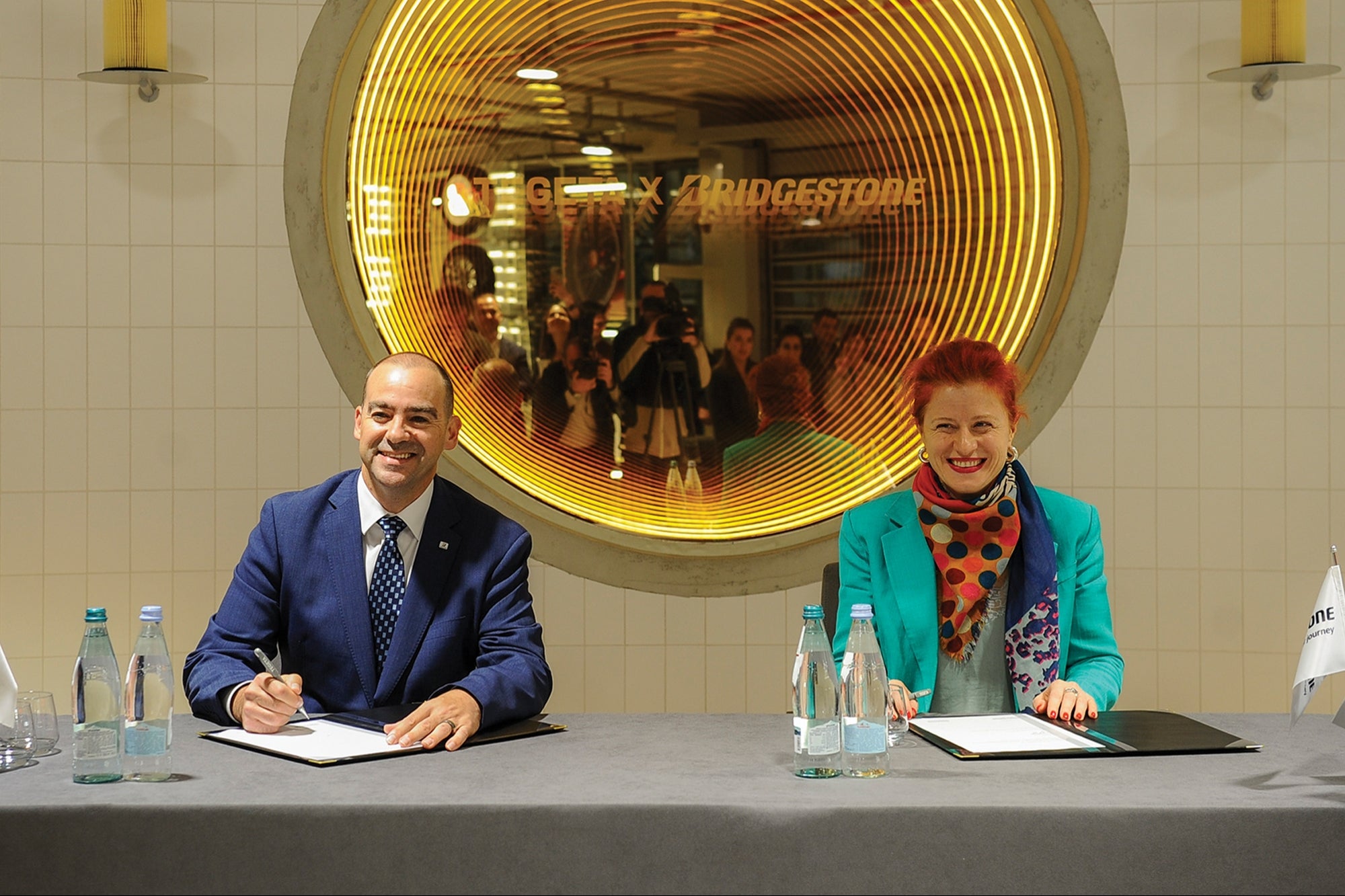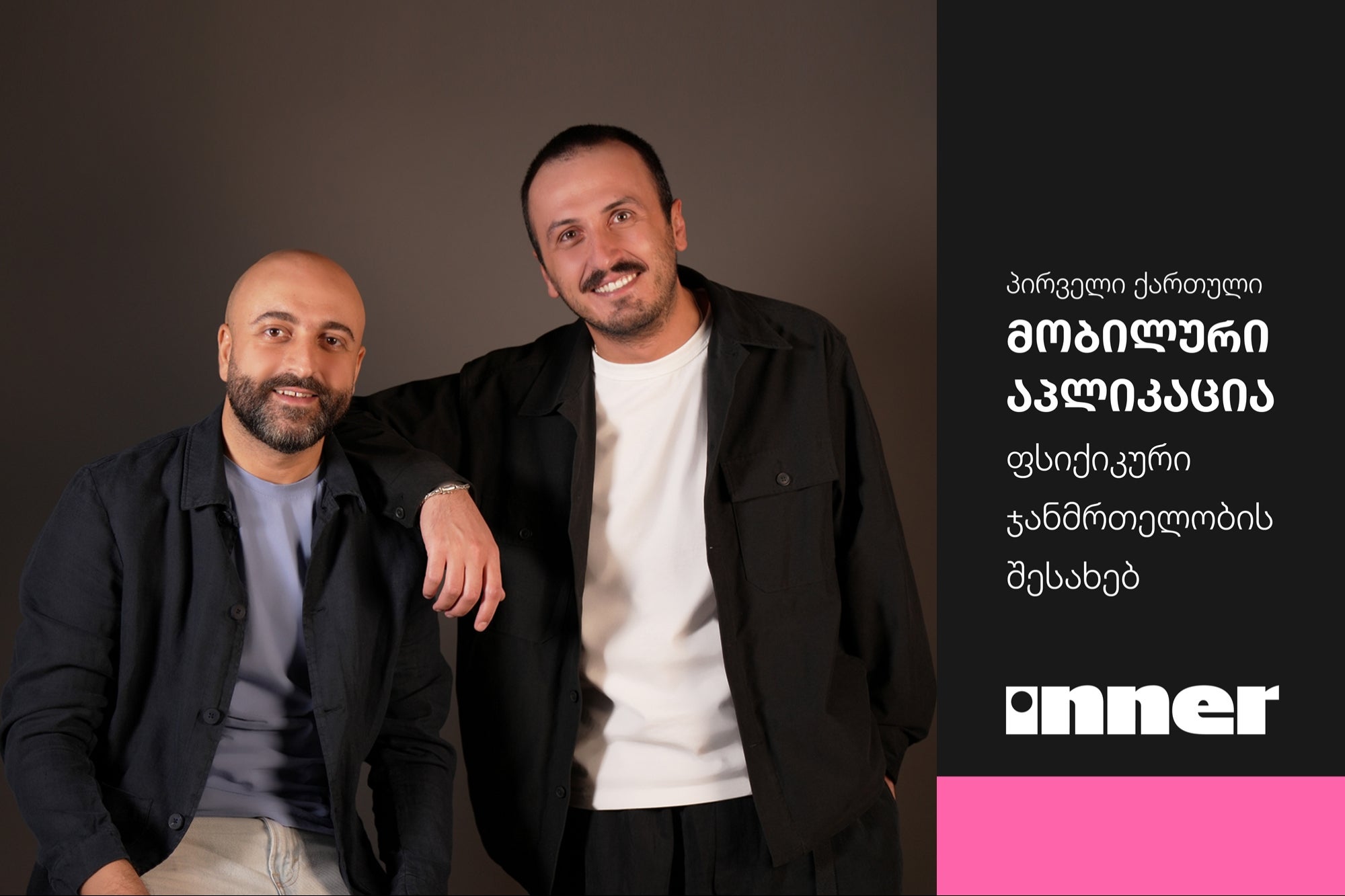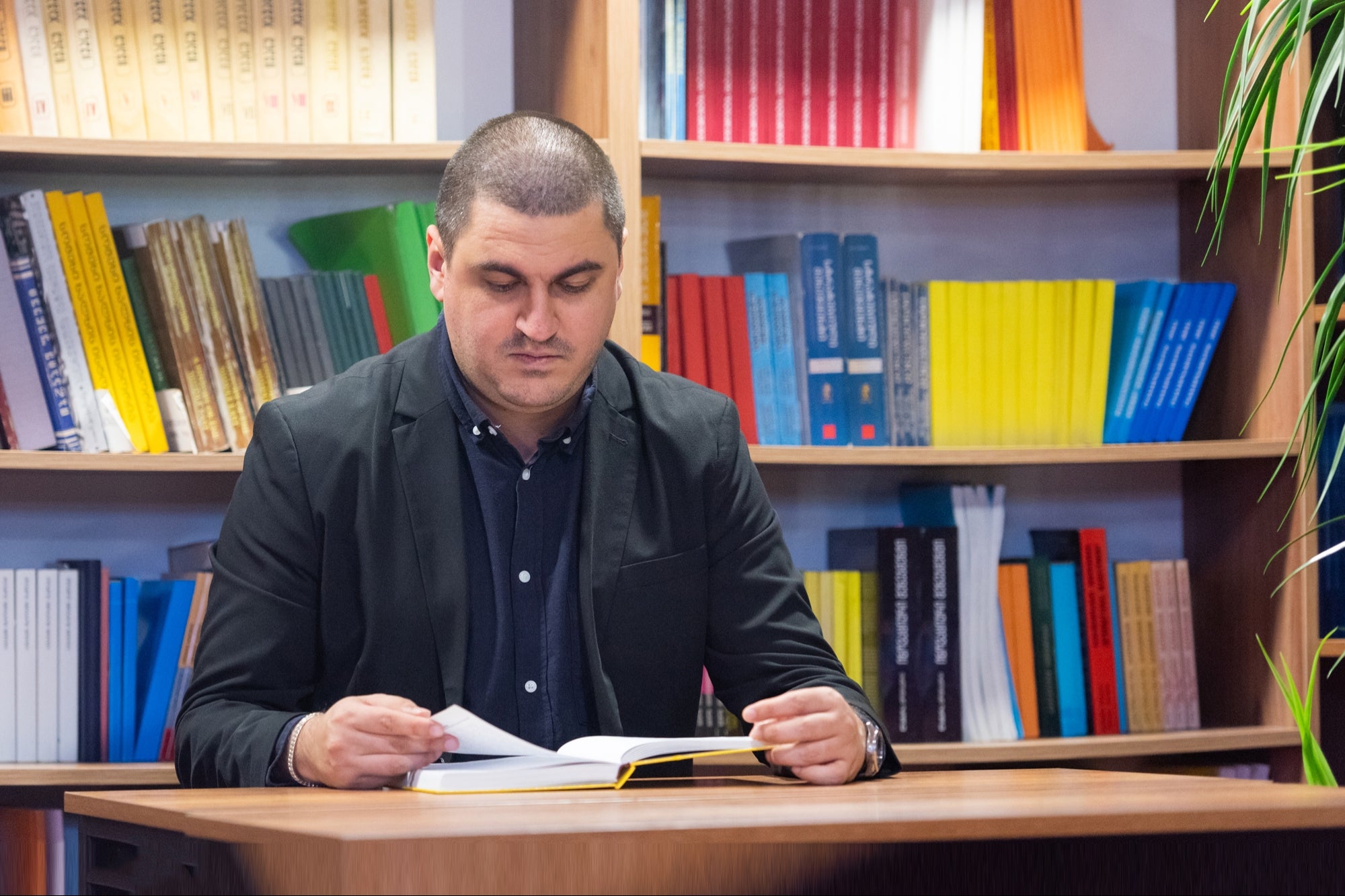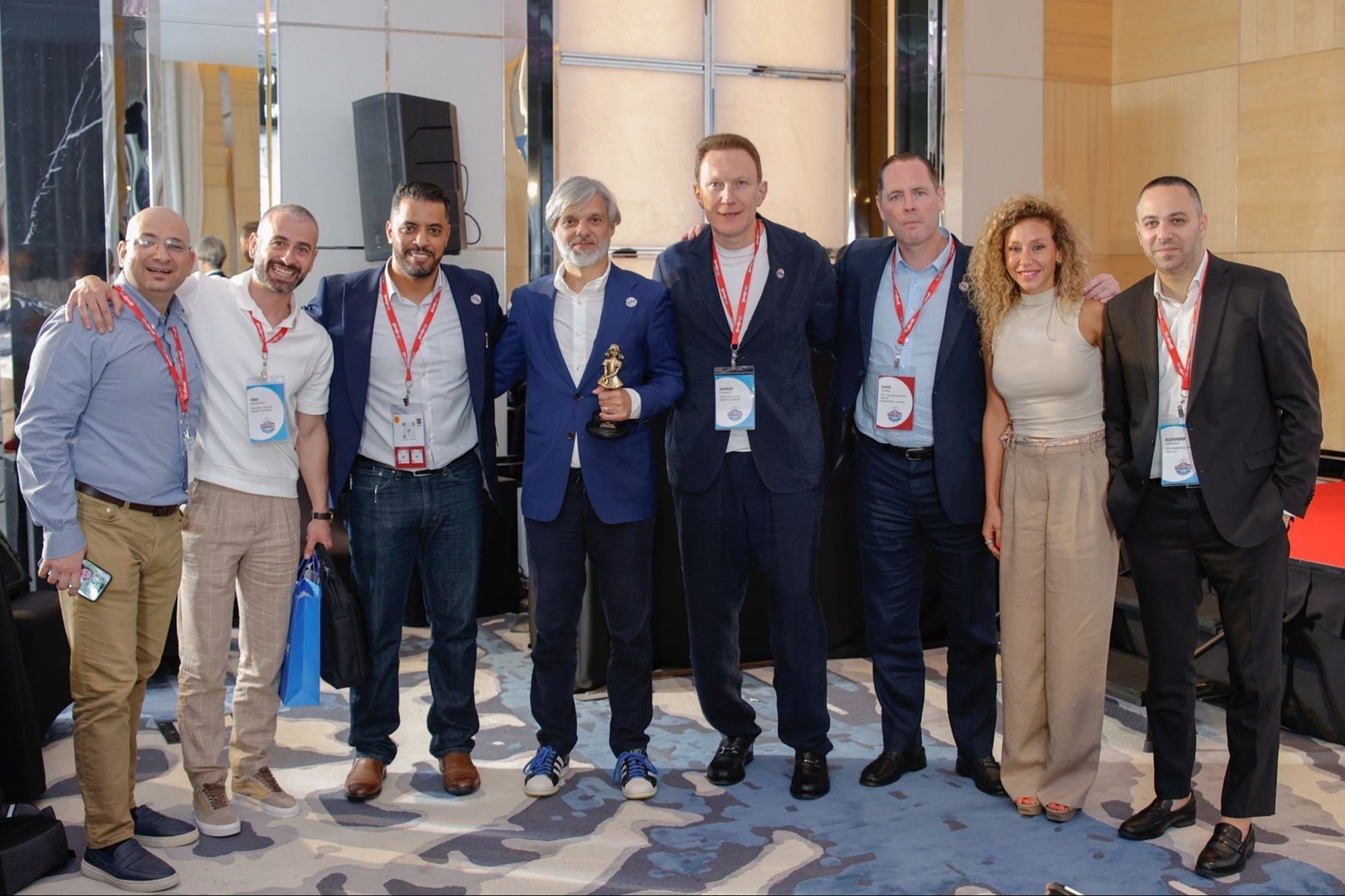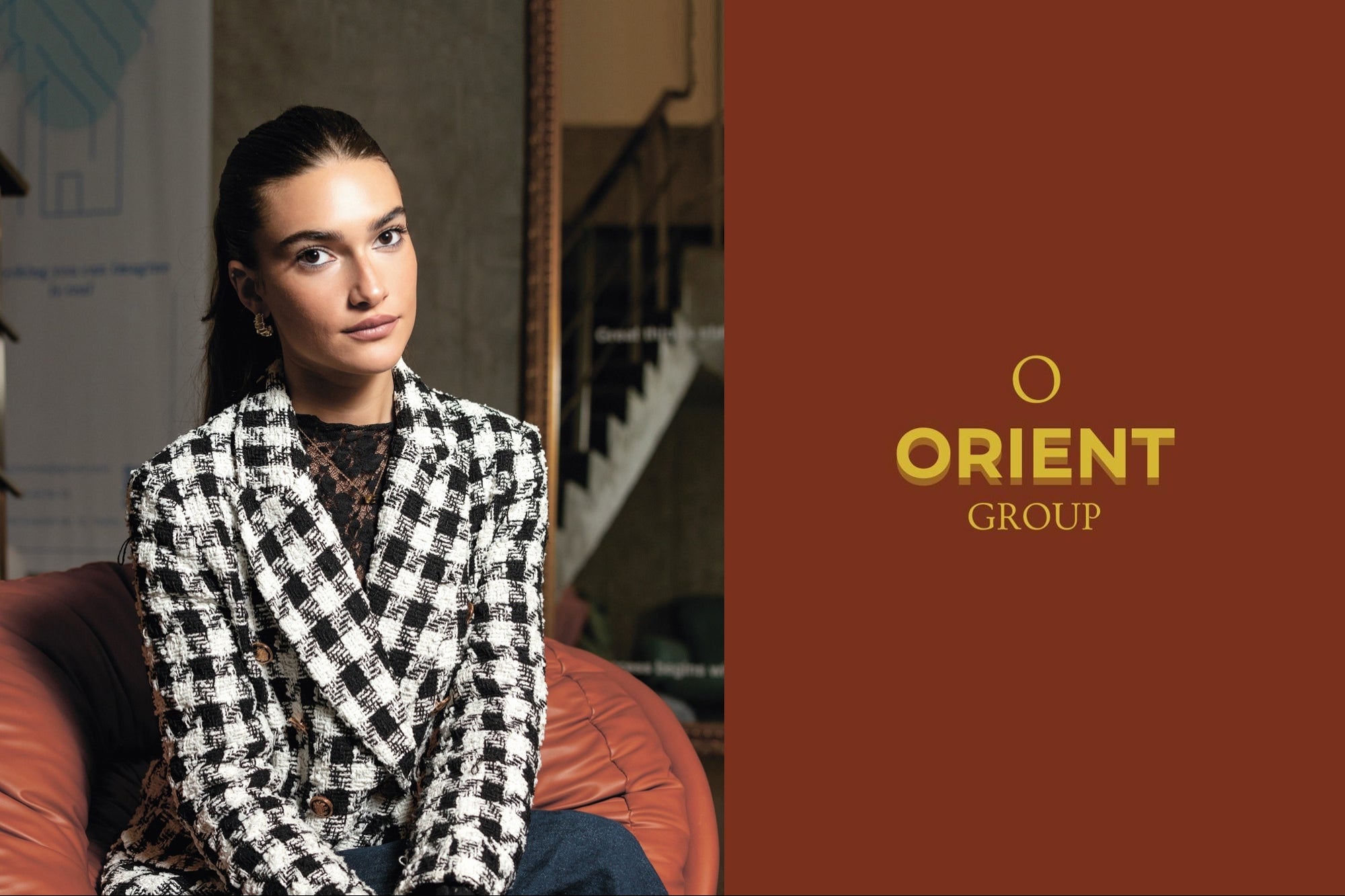Mariam Nakani – a Creative Powerhouse
Opinions expressed by Entrepreneur contributors are their own.
You're reading Entrepreneur Georgia, an international franchise of Entrepreneur Media.

Georgia could easily be described as a playground for creative minds. The dynamic cultural environment certainly fosters the process of expression and can help you redefine what creativity is for yourself. Photography is such a profound visual storytelling form of art and so universal that it can spark a plethora of emotions regardless of its audience's background. That is what Ms. Nakani has been doing through her lenses: capturing Georgian reality with a bold and stunning twist. She has achieved remarkable success in the field of commercial photography. She works in the industry while running a photography school – Nakanimamasakhlisi – with her husband, where they are nurturing a new generation of photographers by sharing their passion, knowledge, and technical finesse, passing on their love for their profession.

Entrepreneur Georgia sat down with Ms. Nakani to talk about her love of photography, her photography school, and her extraordinary career.
Childhood and early years
Ms. Nakani fondly reminiscences about her grandfather, who brought her up single-handedly, became her closest friend, and passed on valuable life skills and knowledge.
Toni Kalandarishvili had German roots and was big on discipline, which was felt in his work ethic and approach. In the Soviet Union, he was an honorable architect of the Republic and a visionary, always well ahead of his time. His impressive portfolio includes a long list of architectural marvels in Georgia; a few to mention are the Kutaisi Memorial Arch, the three-level Republic Square, Hotel "Iveria," (currently Radisson Blu), and the famous "Shatili" buildings on the Nutsubidze Plateau, a neighborhood in Tbilisi. The innovative design of those three buildings, interconnected through bridges, was revolutionary at the time. His know-how and love of experimenting with design took people by surprise, and some of his works were not well-received by the government. His Western ideology and designs were persecuted and not often appreciated by the ruling political party. Such was the case with his monument to sulfur waters – "The Fountain in Stone," a symbol of the warm waters of Tbilisi, which the Soviets named "Andropov's Ears," and which was totally misinterpreted and became wrapped in political turmoil.
Ms. Nakani says of this, "It is unfortunate that my grandfather - a great mind - got to live when the country was engulfed in censorship, bureaucratic politics, and violence. Various political parties oppressed my grandfather's art, and it was often perceived under political contexts. For example, the largest memorial in Georgia dedicated to the soldiers who died during World War 2, The Kutaisi Arch, was blown up by our ex-president, without his realizing he was defiling the history and legacy of those who fought for their country."
"Then 'the Fountain in Stone' on Republic Square, which the Japanese included in the world's top five most interesting monuments of the 21st century, was demolished, only years later to reveal the real reason for demolition – to free up some space for a business center and commercial use. Those arches were inspired by the legend of King Vakhtang Gorgasali, who built Tbilisi on sulfur waters, with the waves in stone symbolizing our city. Regrettably, our government has always oppressed artists, and it is tough for us to maintain our identity," she says.
"My grandfather raised generations of great architects; he was a respected lecturer at the Academy of Arts. I loved attending his lectures, and his ways of communicating with the audience- greatly impacted me. I believe I inherited a little of his extraordinary storytelling skills."
Mr. Kalandarishvili loved to travel and always had his small camera, a Zenit, a famous Soviet camera brand, to document his adventures. Ms. Nakani remembers well that he once read her school essay and with teary eyes, went into his room, out brought his Zenit, handed it to her, and said:
"You are great at telling stories, photography is exactly that – tell your story with a photograph."

That was a pivotal moment in Ms. Nakanis's life – she decided to pursue photography and applied to the Academy of Arts, Faculty of Photography. She was lucky enough to be lectured by the great Vato Tsereteli, the Royal Academy of Antwerp representative, and the legendary Guram Tsibakashvili and Koka Ramishvili. She could not have wished for better lecturers.
"On my first assignment, the day of the Rose Revolution, November 3rd, 2003, I was shooting with my photo film camera - so I did not know how my shots would turn out. I vividly remember seeing a gypsy woman holding a child on the street, protesting for freedom and against the corrupt government that had to go.
"I spent the night in the photo lab and developed the film myself. When I printed the first image by hand on photosensitive paper, I saw my first shot – that gypsy woman with a child in her hands. It felt like a sign. I knew that photography was my destiny because I also was a mother fighting for freedom with my camera."
Soon, her grandfather, Mr. Kalandarishvili, passed away in her arms, leaving her devastated. At just 20 years old, already separated from her husband, as a single mother, she became that woman – a freedom fighter – a fighter for her future.
Becoming Mari Nakani
In the early 2000s, the economic situation was still quite gloomy in Georgia – with no electricity at home most of the time, Ms. Nakani would go to internet cafes in Tbilisi, where one could rent a computer with an internet connection by the hour. There, she learned the basics of Photoshop to get a job and pay for her tuition.

At that time, commercial photography was very new to the country – nobody really knew what it meant or how it was done. There were few printed magazines, no billboards, and photo advertising was just a vague concept that was starting to take shape, and it seemed like Ms. Nakani was at the forefront of it all.
Being a novice, she was always eager to take risks, and applied to all available positions advertised for commercial photography. The first three companies she had an interview with were British Council, the newspaper Georgia Today, and the company for lighting systems New Light. The final stage of the selection process was to capture an image that was the most relevant and original for the specific campaign. Ms. Nakani remembers the whole process as being challenging but very creative.

"Although I had no experience, I really wanted to shoot something bold and modern. I didn't have a studio, but I used my imagination and a little courage; I marched into the streets and asked various establishments to lend me a space to shoot the competition photos – no-one refused. Those strangers were so supportive and accommodating. As a result, I took interesting enough photos to land a job in all three organizations. I ended up working for British Council for a few years as a photographer and it paid for my tuition."

Then came Bata, an Italian store specializing in shoes and leather goods that needed an advertising campaign in Tbilisi. Yet again, Ms. Nakani presented fun and colorful photos, caught the Italian company's attention, and became the official photographer of Bata and Bambino Georgia.
The first job that brought her to stardom was at a leading telecommunication company, Magti. When launching a new service, "Bali," they gave her the freedom to create unconventional photographs with new concepts to uplift the company's image and make it more appealing and in tune with the younger generation. The photos that came out of that project were so phenomenal that the company installed billboards all around the country featuring them, and the whole campaign was deemed a huge success. She continued working for Magti for another eight years, saving up just enough to afford high quality photography equipment – preparing for the next big thing in her life.

Ms. Nakani participated in various festivals and competitions. One of them was the "Kolga" photo competition, where her winning photograph impressed the founder of TBC Bank, Mr. Mamuka Khazaradze, so much that he offered her a job as the official photographer at TBC Bank, leading her to cover the jazz festivals in Georgia and create promotional content for the website. All of the above gave her an extensive and unique experience.
![]()
"I was thrilled when awarded the best photographer prize at the BiHens international competition. It was a big shocker and so unexpected, as I did not apply myself; my good friend Nika Gujejiani, the creative director of the Bank of Georgia, had gathered all my photos and sent them to this prestigious international photo contest, hoping I would win. One evening, he called me to say, 'I think you're winning this!' I remember how Giorgi Popiashvili handed me the prize; it was one of the most magnificent moments in my life."
Soon, Ms. Nakani received a full scholarship at GIPA, and started studying in the Faculty of Advertising Psychology. Once her thesis was approved, she got an offer to teach at the same university, which she says was "the biggest challenge ever."

"I had to write a syllabus and wanted to create an alternative teaching method that would be engaging and fun for my students. Sharing my experience and knowledge with many students was not easy, especially knowing I had to live up to my grandfather – one of the best lecturers in the Academy of Arts. My students showed love and listened carefully, and those who trusted me and were the most curious became my greatest motivation and joy. "

Growing up, an incredibly creative environment surrounded Ms. Nakani- her family members were all artists, and as such, it is in her DNA to experiment and think creatively. Coupled with inspiration from the students' feedback, she came up with a ground-breaking game - totally unprecedented in Georgia, and one which has since been incorporated into her curriculum. She named the game "Geniosobana" or the Game of Geniousity (urban dictionary meaning: equal parts genius and generosity, sharing your genius with others). Each student player has to choose one legendary photographer and closely study their photographs, method, and shooting styles. Then they attempt to take a photo in that style and present it to the class along with the famous photographer's masterpieces. The class has to guess which image belongs to whom, and the winner is the one who is not caught out.

"The game itself is both educational and experimental. I genuinely believe that students get to be more creative and really spread their wings in a field they love. The game builds excitement and fuels curiosity, which can be fed further by hard work and dedication. The idea that one can become a master even for a bit helps them overcome their insecurities and the fear of authority. They gain confidence and become more daring in their works."

Ms. Nakani's lectures were a hit, and students from other faculties soon filled the auditorium. Everyone wanted to either participate in the game or be the judge.

Another interesting project that she initiated for her students was photographing the letters of the Georgian alphabet to create a visual calendar. Several exhibitions were held under her supervision.

"My primary motivation and drive per se is my students' lit-up eyes and their achievements. When I hold large-scale exhibitions of my students' work, many journalists cover the event and it puts students in the spotlight; they get recognized for their work and make me and their parents proud. I had cases when parents got so excited about photography, they started taking courses themselves. It's not just a job or hobby; it's a way of life."

"I've been a lecturer for over ten years now, and besides students, I teach children in Newton Free School up to eleventh grade. I see it as my mission to promote photography as a profession and to develop this field in my country. So far, I think I have successfully done so, sharing my knowledge and expertise with thousands of students."
Nakanimamasakhlisi Photography School - the Family Business
Ms. Nakani, with her husband, Giorgi Mamasakhlisi, after years of experience in the industry and strong ties with such well-known companies as Bank of Georgia, Tegeta, Rompetrol, and Gulf, decided to start their own business and founded an advertising photo studio – Nakanimamasakhlisi.
She notes that they have been avant-garde photographers of the industry for over 20 years; they have worked for commercial, fashion, and photo reporting genres, shooting commercials for international brands such as McDonald's, American Express, Oriflame, Coca-Cola, and Winston. Nakanimamasakhlisi Studio has collaborated with magazines for cover stories like City, 12, Steps, and Culinart for many years.

"We have built a harmonious family. Running a family business - a photography school- would have been impossible without my husband's discipline and work ethic. It's a true joy and source of happiness when two people share the same values and interests."

Her two children are her inspiration as they grow and become successful adults. The elder of the two, Lituka, works as a model and participates in many shootings. She has been part of the photo set for so long that she is totally at home there in that environment. Lituka graduated from the Make-up Academy and established herself as a successful make-up artist. She is also studying to become a DJ. Ms. Nakani's youngest daughter Sofo is passionate about coding and programming. Sofo has been lucky enough to study at Pavle Mgeladze's Innovative school – "re: school" – where she is mastering the most sought-after profession of the future. At the age of 14, gaining such knowledge and experience from Amazon's successful ex-employee is genuinely invaluable.

The photography school was initially run on-site, where Ms. Nakani invited lecturers from different fields to discuss interesting topics such as philosophy, painting, dramaturgy, music engineering, politics, marketing, branding, and psychology. But the renowned lecturers and public speakers gathered big crowds, so it got harder to manage, and the decision was made to switch to online learning for a little while. The financial needs of managing the school also became a burden, and for a while it was not financially viable to pay the enormous monthly rent needed for school premises. Ms. Nakani met with state representatives and business people several times, requesting they devote a space for a photo lab for her students and a place to hold live workshops and master classes. She has yet to hear back from the Ministry of Culture, the National Library, and City Hall on this. Ms. Nakani is eager to make photography a priority in the country.

Meanwhile, she says she is proud to be able to offer online classes for emigrant students from around the world and provide a high-quality, comprehensive education in photography in the Georgian language. Eventually, she would love to have a chance to implement her game/play teaching methodology abroad.
Based on her extensive experience, the only advice Mrs. Nakani would give her students and people who are just starting out in any realm is - "Play more, my friends! Find joy in your endeavors!"





